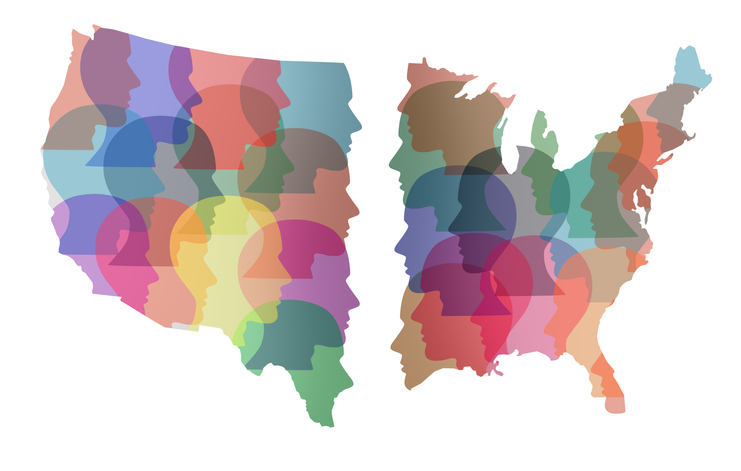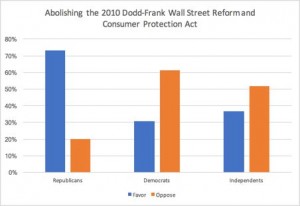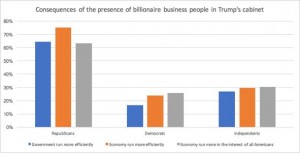On the eve of Donald Trump’s inauguration as president, the latest update of the Chicago Booth/Kellogg School Financial Trust Index survey finds that Americans are sharply divided on some of Trump’s signature economic policies. The only thing a vast majority of Americans can agree on is the need to “drain the Washington corruption swamp.”
As Donald Trump is swearing in as the 45th president of the United States of America, there is no sign that the majority of the country is getting behind him, as generally happens around the inauguration day of a newly elected president.
In fact, today the country appears severely divided between Republicans, who did get fully behind Trump, and Democrats, who seem to despise him more every day, with Independents drifting in the direction of the Democrats. These are the results that emerge from the latest (forthcoming) update of the Chicago Booth/Kellogg School Financial Trust Index Survey, conducted at the end of December 2016 among a representative sample of 1,000 Americans.
The survey focuses on the deregulation plans of the new president and on his recent cabinet appointments. Overall, 46 percent of respondents oppose Trump’s plan to eliminate Dodd-Frank, the financial reform passed in 2010 with the intent of preventing another financial crisis, with only 43 percent supporting it (11 percent do not express an opinion). The Republicans are strongly behind this idea (73 percent in favor vs. 20 percent against), the Democrats strongly against (61 percent vs. 31 percent in favor), with the Independents more evenly split, but still opposing it 52 percent vs 37 percent.
We can observe a similar divide regarding Trump’s decision to appoint several billionaires to key cabinet positions. 65 percent of Republicans think these appointments will make the government run more efficiently, versus only 17 percent of the Democrats and 27 percent of the Independents. The Republicans are even more sanguine about the benefit these appointments will bring to the economy: 75 percent think they will make the economy run more efficiently, while only 24 percent of the Democrats and 30 percent of the Independents think so. Even among Republicans the enthusiasm fades a bit when asked if these appointments will help make the economy run “in the interest of all Americans.” Only 63 percent of Republicans believe so. Not surprisingly, fewer Democrats (26 percent) and Independents (30 percent) agree with this statement.
The only point drawing a majority consensus among both Republicans and Democrats—albeit with different margins—is that “there’s a need to drain the Washington ‘corruption swamp.’” 93 percent of Republicans agree with this statement, 80 percent of Independents, and 67 percent of Democrats. Interestingly, the response to this question is highly correlated with the level of “anger” about the current economic situation reported by the respondents. Among people who claim not to be angry at all, only 64 percent feel there is a need to drain the Washington swamp. Among those who declare themselves very angry, this percentage rises to 85 percent.
Even on this point, however, there is still a huge divide regarding the belief that Trump is going to do anything to fix corruption: 82 percent of the Republicans believe Trump will maintain his electoral promise to introduce ethics reforms aimed at reducing corruption in Washington, while only 20 percent of Democrats (and 41 percent of Independents) believe so.
In sum, the only dimension unifying Americans is the hate towards Washington and its corruption. If President Trump wants to unify the country behind him, he will have to deliver on the promise to “drain the swamp.” However, his early moves do not seem to leave a lot of hope in this sense.








